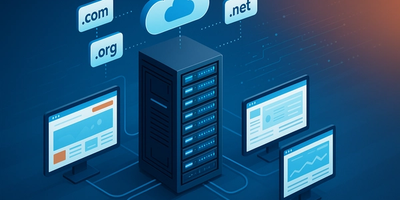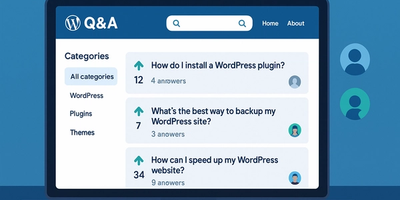Quantum AI in 2025: The Revolutionary Fusion That's Solving the Impossible
Quantum AI is transforming impossible problems into solvable ones. Discover how this revolutionary fusion is reshaping industries in 2025.
ASALogsAgency Team
Author

The marriage of quantum computing and artificial intelligence has reached a tipping point in 2025. Willow performed a benchmark computation in under five minutes that would take a supercomputer 10 septillion years. This breakthrough represents just the beginning of what experts call the "Quantum AI Revolution."
What is Quantum AI?
Quantum AI combines the probabilistic power of quantum computing with artificial intelligence algorithms. While classical computers process information in binary (0s and 1s), quantum computers use quantum bits (qubits) that can exist in multiple states simultaneously, exponentially increasing processing power for specific problems.
This fusion creates unprecedented capabilities for solving complex problems that were previously impossible, from protein folding to climate modeling.
Major 2025 Breakthroughs
Google's Willow Chip Revolution
Willow reduces errors exponentially as it scales up, achieving a breakthrough in quantum error correction. This Google breakthrough solved a critical problem that has plagued quantum computing for decades: maintaining stability as systems scale up.
Microsoft's Topological Breakthrough
Microsoft unveiled Majorana 1, the world's first quantum processor powered by topological qubits. Built with a breakthrough class of materials called a topoconductor, Majorana 1 marks a transformative leap in quantum stability and error reduction.
IBM's Fault-Tolerant Systems
IBM is building the world's first large-scale, fault-tolerant quantum computer. IBM Quantum Loon, expected in 2025, is designed to test architecture components for the qLDPC code, bringing practical quantum computing closer to reality.
Real-World Applications
Drug Discovery Revolution
Quantum AI accelerates pharmaceutical research by simulating molecular interactions at unprecedented scales, reducing drug discovery timelines from decades to years.
Financial Optimization
Banks and investment firms use quantum AI for portfolio optimization, risk analysis, and fraud detection with capabilities far beyond traditional computing.
Climate Modeling
Problems previously deemed impossible due to computational limits (e.g., protein folding or climate modeling) could now be within reach. Scientists can now create more accurate climate predictions and develop better environmental solutions.
Artificial Intelligence Enhancement
Quantum computing supercharges machine learning algorithms, enabling AI systems to process vast datasets and identify patterns impossible for classical computers.
Market Growth and Investment
The quantum computing industry is experiencing explosive growth. Current quantum computing revenue of $650-750 million should exceed $1 billion in 2025 according to industry projections.
Global investment has surged dramatically. Japan announced a $7.4 billion bet on the sector and Spain committed to investing $900 million, bringing announcements for public financing to more than $10 billion.
Key Players Leading the Revolution
Google: Leading with Willow chip and quantum error correction breakthroughs IBM: Building fault-tolerant quantum systems and cloud access platforms Microsoft: Pioneering topological qubits with Azure Quantum services D-Wave: Commercial quantum annealing with sales that have skyrocketed 289% year over year to $18.1 million
Industry Impact
Healthcare Transformation
Quantum AI enables personalized medicine by analyzing genetic data and drug interactions at molecular levels, revolutionizing treatment approaches.
Autonomous Systems
Self-driving cars and autonomous drones benefit from quantum-enhanced AI that processes sensor data and makes split-second decisions more accurately.
Cybersecurity Evolution
Quantum cryptography provides unbreakable encryption, while quantum AI detects sophisticated cyber threats that classical systems miss.
Supply Chain Optimization
Global logistics companies use quantum AI to optimize routing, inventory management, and demand forecasting across complex networks.
Challenges and Limitations
Technical Hurdles
Quantum systems remain extremely sensitive to environmental interference, requiring near-absolute zero temperatures and isolated conditions.
Cost Barriers
Current quantum computers cost millions of dollars and require specialized expertise to operate and maintain.
Talent Shortage
The quantum AI field faces a severe shortage of qualified engineers and researchers, limiting rapid scaling.
Future Outlook
The intersection of quantum computing and AI is not just about incremental improvements. It's about transformative breakthroughs that will redefine how we approach complex problems.
Experts predict that by 2030, quantum AI will be essential for:
- •Advanced drug discovery and personalized medicine
- •Climate change solutions and environmental modeling
- •Financial market analysis and risk management
- •Next-generation artificial intelligence systems
Getting Started with Quantum AI
Educational Resources
Major universities now offer quantum computing courses, while online platforms provide accessible introductions to quantum AI concepts.
Cloud Access
Companies like IBM, Google, and Microsoft offer cloud-based quantum computing access, allowing businesses to experiment without massive hardware investments.
Development Tools
Quantum programming languages like Qiskit and Q# make quantum AI development more accessible to traditional programmers.
Connection to Current AI Trends
Quantum AI represents the next evolution of technologies we've explored, from advanced AI applications to cutting-edge tools like ChatGPT and Gemini.
Conclusion
Quantum AI isn't science fiction anymore—it's transforming industries today. Due to rapid advances in quantum computing, we're witnessing solutions to problems that seemed impossible just years ago.
The fusion of quantum computing and artificial intelligence represents humanity's next great technological leap. Companies and individuals who understand and adapt to this revolution will lead the next era of innovation.
For businesses, the message is clear: quantum AI will determine competitive advantage in the coming decade. The question isn't whether to engage with this technology, but how quickly you can begin.
Stay ahead of technological breakthroughs by exploring our AI tools directory and following the latest developments in our blog.
Written by ASALogsAgency Team
Expert content creator specializing in technology, AI, and digital innovation. Passionate about sharing insights that drive business growth and digital transformation.
View all postsJoin the Discussion
Share your thoughts and engage with other readers
Comments section coming soon
![How to Create a Custom Permalink in WordPress [Complete Guide]](https://cdn.sanity.io/images/eeieuy98/production/56a641335b85ad424b31dfc1a005581eaf29d429-1536x1024.png?rect=0,128,1536,768&w=400&h=200)

